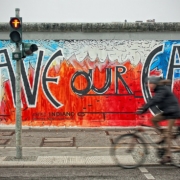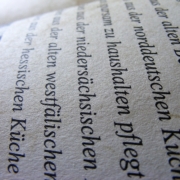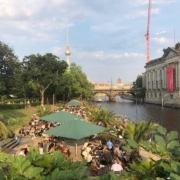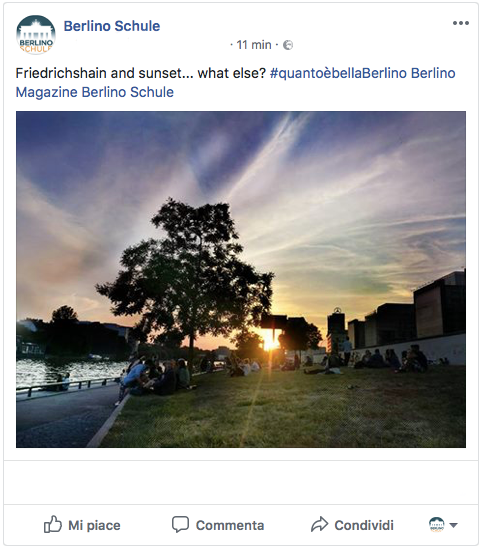Why on earth are there 15 ways to say meatball? All the possible variations of the most used words in German
When deepening your knowledge of a foreign language, you will start to feel more comfortable about it, yet you will keep hearing words that are new to your “personal vocabulary”: there is still much to be done to achieve bilingualism. This is what usually happens with German, for instance, which not only is it harder for its syntax than other languages but it also has a wide range of vocabulary. You will feel discouraged to know that German has a wide range of words that can either vary according to their language register or to the region they belong to. If you have the intention of feeling part of the community, therefore, it is recommended to know, if not all of them, at least a few of the possibile variations of the most used words in German. A few examples listed below are concerning the local cuisine.
PANCAKES
If you happen to order some Pfannkuchen in Berlin, you won’t get the usual pancakes you might expect, yet jam-stuffed doughnuts! More broadly, there are 12 different ways to say “pancakes” in German. The Pfannkuchen is a calque of the English word which stands for the actual pancakes. However, in the area of Berlin it is more likely the hear Eierkuchen when referring to pancakes, while das Omelett is typical of Western Germany and die Omelette is commonly used in the area near Switzerland. People living at border with Poland and in Leipzig would call them Plinse or Plinz; Palatschinke in Austria.
GINGERBREAD MAN
Talking about desserts, there are 12 ways to say “gingerbread man” in German. Those typical Christmas cookies are called Lebkuchenmann in Eastern Germany, Munich, Berlin and Hannover; Weckmann o Weckmännchen in South-Western Germany; Stutenkerl in North-Western Germany. In Austria it is commonly known as Krampus, a legendary creature that, during the Christmas season, punishes children who have misbehaved. In Stuttgart and Karlsruhe is Dumbedei. The several variations not only depend on the geographical area but also on the ingredients and spices used in the recipe. Spekulatius, from the Belgian Speculoos, is also a widepread way in Berlin to call those spicy cinnamon cookies.
MEATBALLS
When you first move to Germany, you will notice that most of the German cuisine is based on meat dishes: not only will you taste the well-known sausages but you will also have the chance to try out the German meatballs, which you can easily find at any local store. Although the most widespread is Fleishkloß, there are actually 15 ways to say “meatball” all over the country: they call them Frikadelle in Northwestern and Central Germany or Fleishküchle in the southwest. In Dresden and Leipzig they are known as Klops o Kloß; Fleishaiberl in Austria. Lastly, Bulette or Boulette are typical of Berlin.
We highly suggest you keeping in mind a few of these terms listed above so that you can figure out what you are about to eat!
BREAD
Talking about variations of words concerning food, we need to mention one of the essentials of everyone’s diet: bread and, more specifically, the last chunk of a loaf of bread. This term has loads of variations in Italian, according to the region it is associated with, such as “cozzetto”, “cantuccio”, “gomito”or “culetto”. However, there are more than 50 variantions in German: Kanten, Anschnitt, Kipf, Ranft/ Ränftchen, Knorze, Knust, Rankl, Krust, Kirshte and so on. In Switzerland Anhau, Scherz, Mürggu, Mutsch, Chäppi, Houdi are the most used, while Scherzerl is typical of Southern Germany and Austria.
HICCUP
Let’s change topic! There are at least 25 ways to hiccup in German. The first word that might cross your mind could be either Schluckauf or Schluchzer. You might hear people say Hädscher in the south of Germany and in the areas bordering France; Schnackler is a typical Austrian variation instead; lastly, Hitzgi is characteristic of Switzerland.
SLIPPERS
It is an easy-peasy word which has a lot of equivalents in German. You can’t go wrong if you use the word Hausschuhe, which literally means “house shoes”. However, there are 10 ways to say slippers. Pantoffeln sounds like Italian (pantofole) yet it is not spread over cities like Berlin and Hannover, just like Schluffen mostly used in Frankfurt and in the state of Rhine. Bambuschen, again similar to the Italian “babbucce”, is frequently used in the east of Germany. Lastly, if you are in Switzerland you will be more likely to hear Finken.















